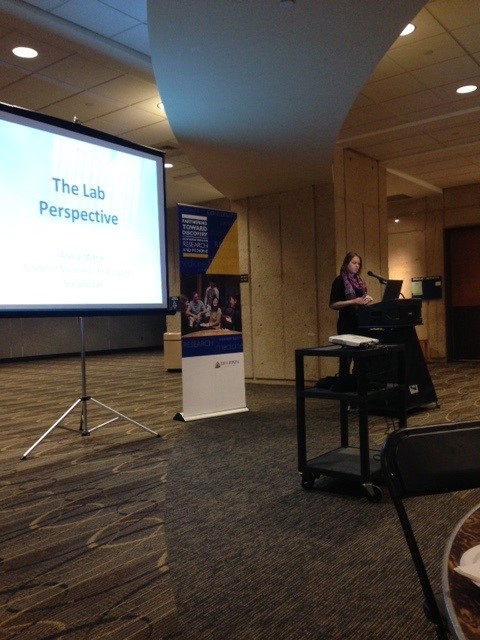Organ transplants are lifesaving operations for HIV-positive patients with kidney and liver failure — but only if they can reach the top of the waiting list. To further complicate the process, the National Organ Transplant Act of 1984 strictly prohibited the transplant of organs from HIV-positive donors to HIV-positive recipients due to safety concerns and social stigma. Pioneering studies from Elmi Muller’s group in South Africa demonstrated that HIV-positive organs can be safely transplanted into HIV-positive recipients without significant side effects. However, it was not until November 2013 that the United States permitted such operations. Advocated by Johns Hopkins transplant surgeon Dorry Segev and signed by President Obama, the HIV Organ Policy Equity (HOPE) Act officially lifted the ban on HIV-positive organ transplantations. This past March, the first HIV-positive transplant was successfully performed at The Johns Hopkins Hospital.
The Partnering Toward Discovery seminar series recently highlighted this work. Titled “How We Did the first HIV-Positive to HIV-Positive Transplant in the United States: The Policy and the Science,” the seminar was held on Nov. 21 — the three-year anniversary of the HOPE Act.
It began with a discussion by Segev, who told the story behind this landmark feat, emphasizing the influence of media and politics on science. Segev’s group contributed substantially toward HIV-positive transplantation. In 2011, hundreds of possible HIV-positive organ donors were identified based on criteria established in the original South African studies. The hope behind assembling a list of potential donors was that it could speed up the process if such transplants were to be legalized later on. Segev’s work was picked up by the New York Times, which also helped to advocate for modifying the National Organ Transplant Act.
Next, medical students Ashton Schaffer and Jessica Ruck and graduate student Alyssa Martin discussed HIV epidemiology, transplant surgery and ongoing research questions. Schaffer talked about how combinations of anti-retroviral therapy have made HIV a manageable disease, thus lowering the stigma associated with HIV-positive status. A patient’s viral load, or the amount of virus in the blood, is controlled with consistent antiretroviral administration, making HIV-positive donor organs viable options for HIV-positive recipients. Indeed, the HIV-positive to HIV-positive organ transplant carried out in March has been largely successful, Ruck explained next. This case involved one donor who provided a kidney and liver to two recipients. The recipients, who had well-controlled viral loads prior to the transplant, have experienced no significant rejection or rebounds in HIV infection.
Lastly, Martin spoke about HIV’s stronghold: the latent reservoir. Because HIV inserts its DNA into the genome of an infected cell, some immune cells still house the virus in a dormant form, even when there is no detectable virus in a patient’s blood. This form comprises the latent reservoir and can return to producing infectious virions if anti-retroviral therapy is stopped. For this reason, HIV cannot be cured, and attempts to “purge” the dormant virus are being heavily researched. Martin explained that there is ongoing interest in how transplantation could stimulate the immune system to promote this process, potentially making HIV-positive transplants instrumental toward a cure.
After the event, I caught up with Martin, who said Partnering Toward Discovery “brings together different perspectives and it makes it very accessible to everyone. You hear of HIV-positive organ donors — maybe that sounds scary if you don’t know the whole story.” By attending this event, I and many others learned and appreciated the whole story.
Related Content
- Read about the Hopkins Transplant Titan who’s team transplanted the nation’s first HIV-positive organs.
- Watch: Dr. Dorry Segev discusses the HIV-positive transplant breakthrough.
- Learn more about the Comprehensive Transplant Center at Hopkins.

Pingback: Students in the Spotlight at Annual Research Symposium
Comments are closed.